When writing a research manuscript or a lab report, I have been conditioned to complete all of my experiments first and then start by writing the results section. My mentors have always encouraged me to start with the section that ‘writes itself’, given that when you obtain your experimental results, you cannot alter them. I started the school year thinking I would use this approach for my thesis – focus strictly on experiments during the fall and the start of spring semester and transition into the written portion of the thesis during late spring semester. However, while I was at home and outside of the lab between Thanksgiving break and early February, I knew I could not spend more than 2 months without thesis progress. Although I did not have my results nearly ready by that point, I began to brainstorm different ways in which I could work on my lab-based thesis without access to the lab. In this post, I will highlight ideas and resources that can help you make progress on your thesis, even while you are outside of the lab.
Continue reading How to Make Progress on Your Lab-Thesis Outside of the LabAttending a Virtual Conference: Reflections from the 2020 AIChE Student Conference
In the spring of 2019, I wrote a post highlighting my positive experience at the 2019 American Institute of Chemical Engineers (AIChE) Regional Conference. Specifically, I encouraged other students to attend conferences and seminars within their department even when they felt as if they were too busy to attend, as these events can strengthen your academic experience rather than interfere with it.
Throughout the COVID-19 pandemic, in-person conferences and academic events have been replaced with virtual experiences that are now even more accessible to students, as you can attend without traveling far distances and at reduced or no costs. Although the virtual conference was undoubtedly different than the in-person one, I still felt the same, if not more, benefits from attendance. In this post, I will give advice on how to navigate a virtual conference, as I reflect on my takeaways from this experience.
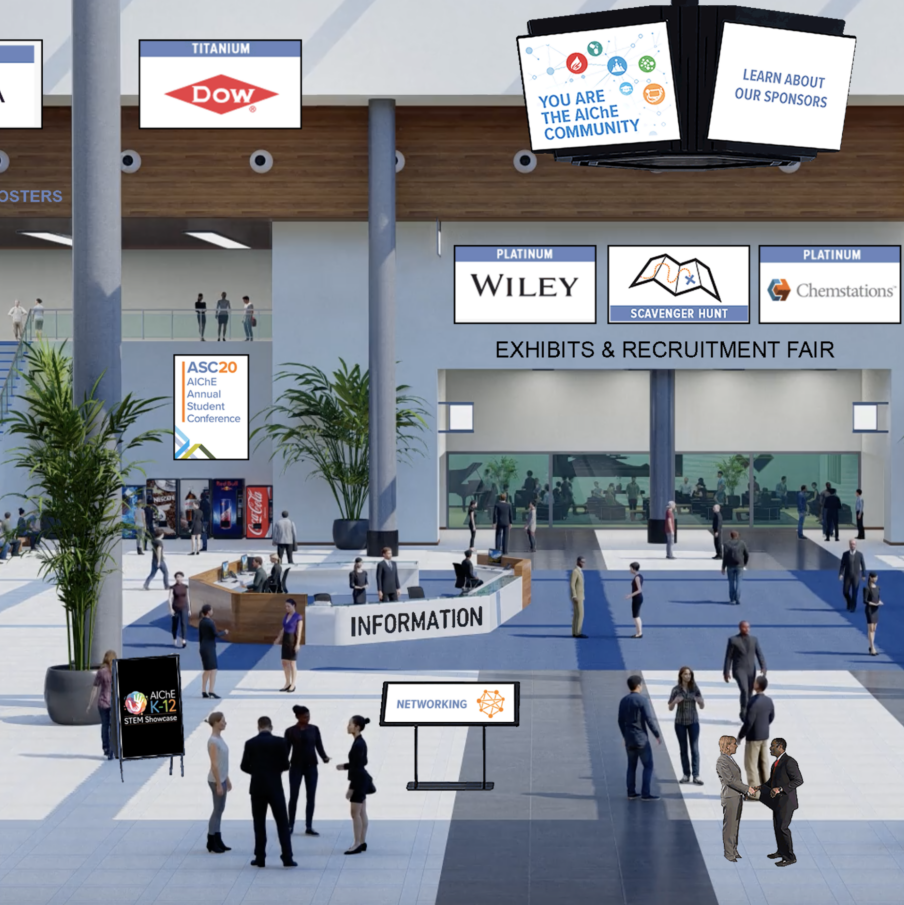
How to Prepare for an In-Class Zoom Presentation
Presenting on Zoom can be difficult, as you must now learn how to keep a virtual audience engaged. Last spring semester, after returning home due to COVID-19, I had to quickly learn how to make this transition, as I was enrolled in CBE346: Chemical Engineering Laboratory (core lab). This course was laboratory based, and it consisted of 4 different lab rotations, after which all students had to complete a written report and a presentation. Due to the pandemic, 3 of those were completed over Zoom.
In this post, I will give tips on how to prepare for a Zoom presentation, using the insights I gained from my core lab presentations.
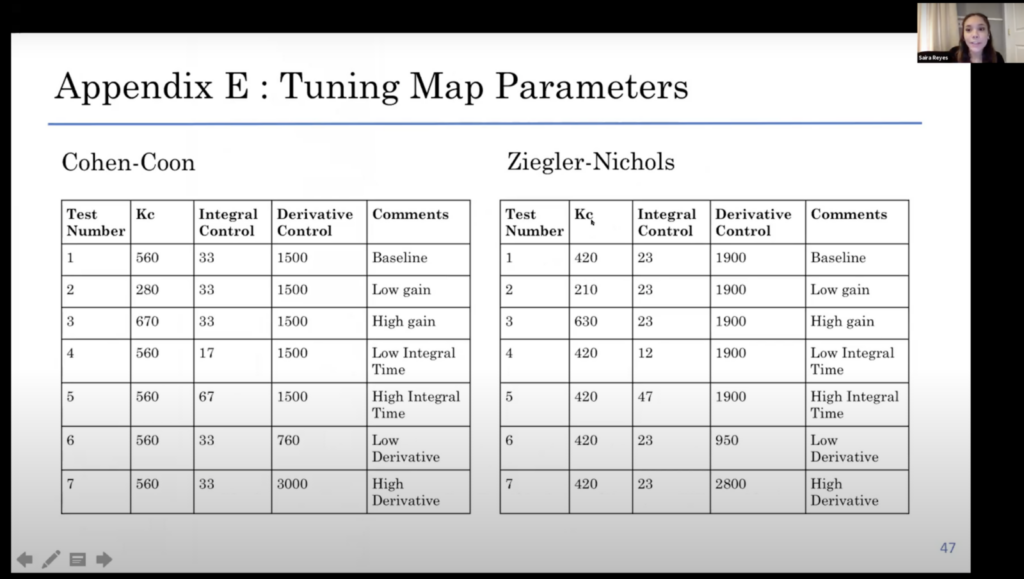
Turning a Laboratory-Based Research Proposal into a Remote Project
Last spring semester, I was completing my junior independent work in a bioengineering lab on campus. My project was lab-heavy, as I was investigating the extent of DNA damage (measured as type and frequency of breaks occurring in the DNA) that occurs in persister subpopulations (cell populations with non-inherited tolerance to antibiotics) of E.Coli cells when treated with antibiotics and other DNA damaging agents. I had prepared a series of experiments to test these conditions, most of which would be performed after returning from spring break. However, those plans changed in March, when students were sent home due to the COVID-19 pandemic.
Like many other lab researchers, I was left with incomplete experiments and an upcoming deadline to present my work. Independent research for the chemical and biological engineering (CBE ) department is only one semester long, and I spent most of the first half of the semester doing literature review, planning experiments and learning lab techniques. With only eight weeks left before my final paper and presentation deadline, I worried about the possibility of having to change my entire research topic into something that could be completed remotely. However, along with the lead researcher of the lab, or principal investigator (PI), and graduate student mentor, we developed a plan to easily transition the project I had already been working on into a remote project. In this post, I will give tips on how to conduct laboratory research remotely.
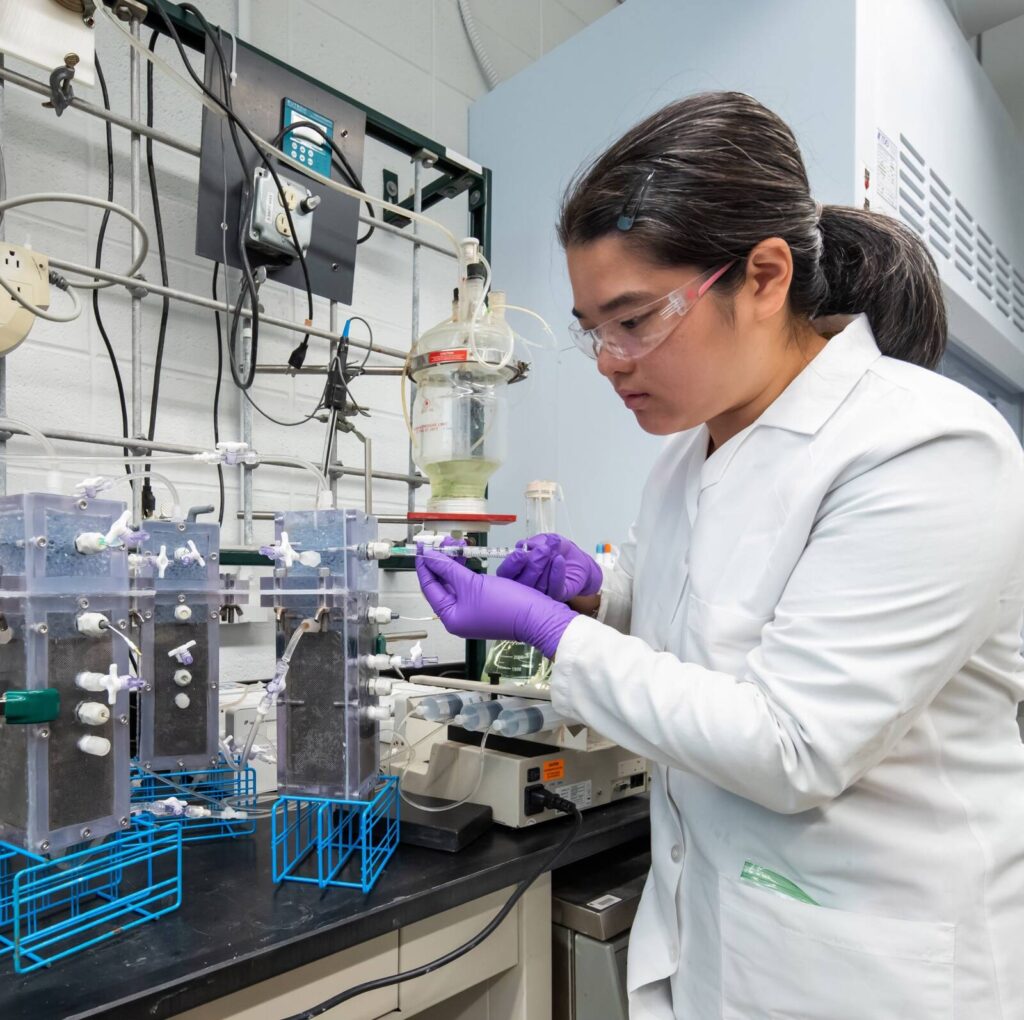
Preparing for a Lab-Heavy Semester
As I began choosing my courses for next semester, I knew I had to take CBE core lab, as this is a requirement for the concentration during the spring semester of junior year. In addition, I was really excited about conducting independent work in a new bioengineering lab, which I am hoping will be the lab that I stay in for my senior thesis. With both 7 hours of core lab per week and an expectation of 20 hours of independent work per week, I know I will be spending a lot of time in the lab next semester, so I have started to prepare for that. If you are also taking core lab while doing independent work, or if you are enrolled in multiple lab-courses, such as chemistry, molecular biology and physics at the same time, you will likely need to plan ahead. In this post, I will offer tips on how to prepare for a lab-heavy semester:

Preparing for Academic Work in Foreign Languages
Last summer, I visited my native country, Honduras, for the first time in 10 years. Because I did not get to experience a lot of the culture while I was living there during my childhood, my family and I planned a trip across some of the most historically rich landmarks in the country, including the Mayan ruins.
To learn the most during the trip, I knew I would have to complete some preliminary research on my own to acquaint myself with the history and culture in general, which of course meant reading research papers and articles in Spanish. I knew this task would be difficult, because despite the fact that I lived in Honduras for 10 years and had been speaking Spanish at home my entire life, I had never read or written academic work in Spanish.
Whether you are reading sources in other languages, preparing to go abroad for research, or writing for a class or independent work in a foreign language, completing this task will be different than completing an assignment in English. In this post, I will highlight my two biggest take-aways on how to prepare to engage with scholarly work in another language.
Continue reading Preparing for Academic Work in Foreign Languages
Mid-semester Reflections: Knowing When to PDF a Class
Last spring, I began the semester specifically planning to PDF my English class. I knew my schedule would be time-consuming, since in addition to English, I was also taking immunology, organic chemistry, intro to material science, and Portuguese. Because I intended to count all of my other courses as either CBE departmental electives or towards a Portuguese certificate, so I thought it would be wisest to PDF English.
However, half-way through the semester, I realized that I was doing relatively well with the English coursework, so I probably did not need to PDF the course. The course that was actually more time-consuming and difficult than I had expected was immunology. This caused me to rethink my process for choosing how to select a course to PDF. I started to look at the course load itself instead of just at the requirements I was satisfying, and in the end, I chose to PDF immunology. In this post, I will discuss in more detail some things I considered before making my decision and offer tips for selecting to PDF a class.
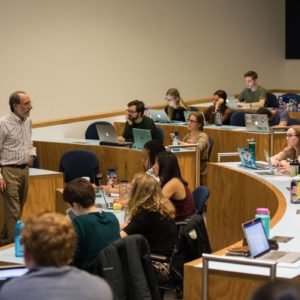
Continue reading Mid-semester Reflections: Knowing When to PDF a Class
Staying Up-to-Date with Lab Literature Readings
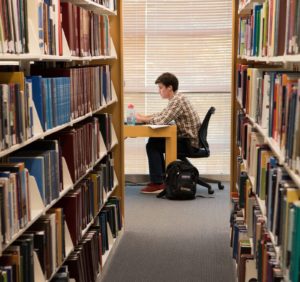
When beginning a new lab project, whether it is a summer internship, independent work, or a senior thesis, your mentors will likely present you with academic papers relevant to your topic. This will help you begin to frame your experiments and the overarching goals of your research.
But once you understand enough background to begin, staying up to date with recent papers can be difficult, especially when you are balancing course work, extracurriculars, and other commitments in addition to planning and conducting experiments. In my experience, I found it difficult to sit down and do broad scholarly searches on a research topic as I first did when starting a new project. However, strategies such as using library resources and speaking with others in the department facilitated this process. In this post, I will give tips on how to stay current with laboratory news and advances, specifically with STEM research.
Continue reading Staying Up-to-Date with Lab Literature Readings
Looking Beyond the Orange Bubble
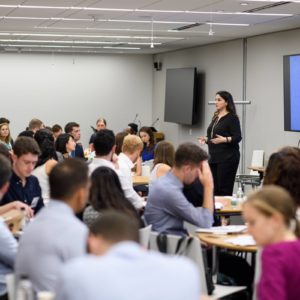
It is easy to get caught up in everything going on on campus. Between classes, extracurriculars, and other activities, it feels as if there is no time for anything outside of Princeton. However, in a post at the end of last year, I mentioned the importance of attending outside academic conferences and other enrichment opportunities as a way to strengthen your academic experience. After a great learning opportunity at the American Institute of Chemical Engineers (AIChE) conference in April, I made it a goal for myself to attend more of these events this year. Thus, when I received an email from the Princeton University Mentorship Program (PUMP!) about attending the DISCOVER Summit in Philadelphia on September 13th, I immediately accepted. In this post, I will further expand on how the summit affirmed the importance of looking beyond the “orange bubble”.
Post-Princeton Life: An Interview with Stacey Huang ’16
For this year’s Spring Seasonal Series, entitled Post-Princeton Life: The Experiences of PCUR Alumni, each correspondent has selected a PCUR alum to interview about what they have been up to. We hope that these interviews will provide helpful insight into the many different paths Princeton students take after graduation. Here, Saira shares her interview.
~~~~~
As part of the Spring Seasonal Series, I interviewed Stacey Huang ’16, who was an engineering correspondent in the electrical engineering department. Stacey is now pursuing a Ph.D. in electrical engineering at Stanford University. As an engineering student who is also interested in pursuing a graduate degree, I interviewed Stacey to find out more about her research experience.
Continue reading Post-Princeton Life: An Interview with Stacey Huang ’16

